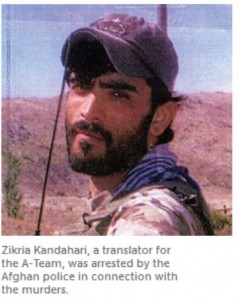For Susan Rice, Love of Endless War Means Never Having to Say US Is Sorry
Yesterday evening, reports appeared in both the New York Times and Khaama Press in Afghanistan that the final hurdle for the Bilateral Security Agreement had been cleared and that US President Barack Obama would sign a letter to be read at the loya jirga. The letter would note that the US has made mistakes in its war efforts in Afghanistan. Further, the letter would convey an apology along with a pledge to avoid repeating the mistakes in which innocent Afghan citizens suffered.
But for the endless war faction within the US military and government, an apology just won’t do (even if there was one to Pakistan that finally reopened the supply routes after the US killed 24 Pakistani border troops). National Security Advisor Susan Rice immediately got time with Wolf Blitzer on CNN to nip the idea of an apology in the bud:
“No such letter has been drafted or delivered. There is not a need for the United States to apologize to Afghanistan,” National Security Adviser Susan Rice said on CNN’s “Situation Room.”
“Quite the contrary, we have sacrificed and supported them in their democratic progress and in tackling the insurgents and al Qaeda. So that (letter of apology) is not on the table.”
Rice said she has seen news reports but has no idea where they are coming from, describing the claims as a “complete misunderstanding of what the situation is.”
Here’s the video:
[youtuber youtube=’http://www.youtube.com/watch?v=KRDWTuApcxM’]
I’m surprised she didn’t go all the way to insisting on an apology from Afghanistan for being ungrateful for all the freedom we’ve unleashed on them.
The Times version of the story has been through a number of changes. Note that the url retains the early headline for the story “Key Issue Said to be Resolved in US-Afghan Security Talks”. The story now reflects the push-back from Rice, but it also shows that diplomats are focusing on a letter anyway (but of course now can’t call it an apology):
A senior State Department official, speaking on condition of anonymity to discuss continuing negotiations, was more noncommittal, saying that a letter acknowledging past issues like civilian casualties was a possibility being weighed. “We will consider his request for reassurances, including the option of a letter from the administration stating our position,” the official said.
Under the Afghan description, in return for the letter, Mr. Karzai would then accept wording that allowed American Special Operations raids to search and detain militants within Afghan homes, but only under “extraordinary circumstances” to save the lives of American soldiers. That would seem to greatly hamper the American intent behind those operations, which commanders have said are critical to taking the fight directly to Al Qaeda and other terrorist groups.
The Washington Post goes further on the letter and suggests that it will indeed be signed by Obama and delivered: Read more →

